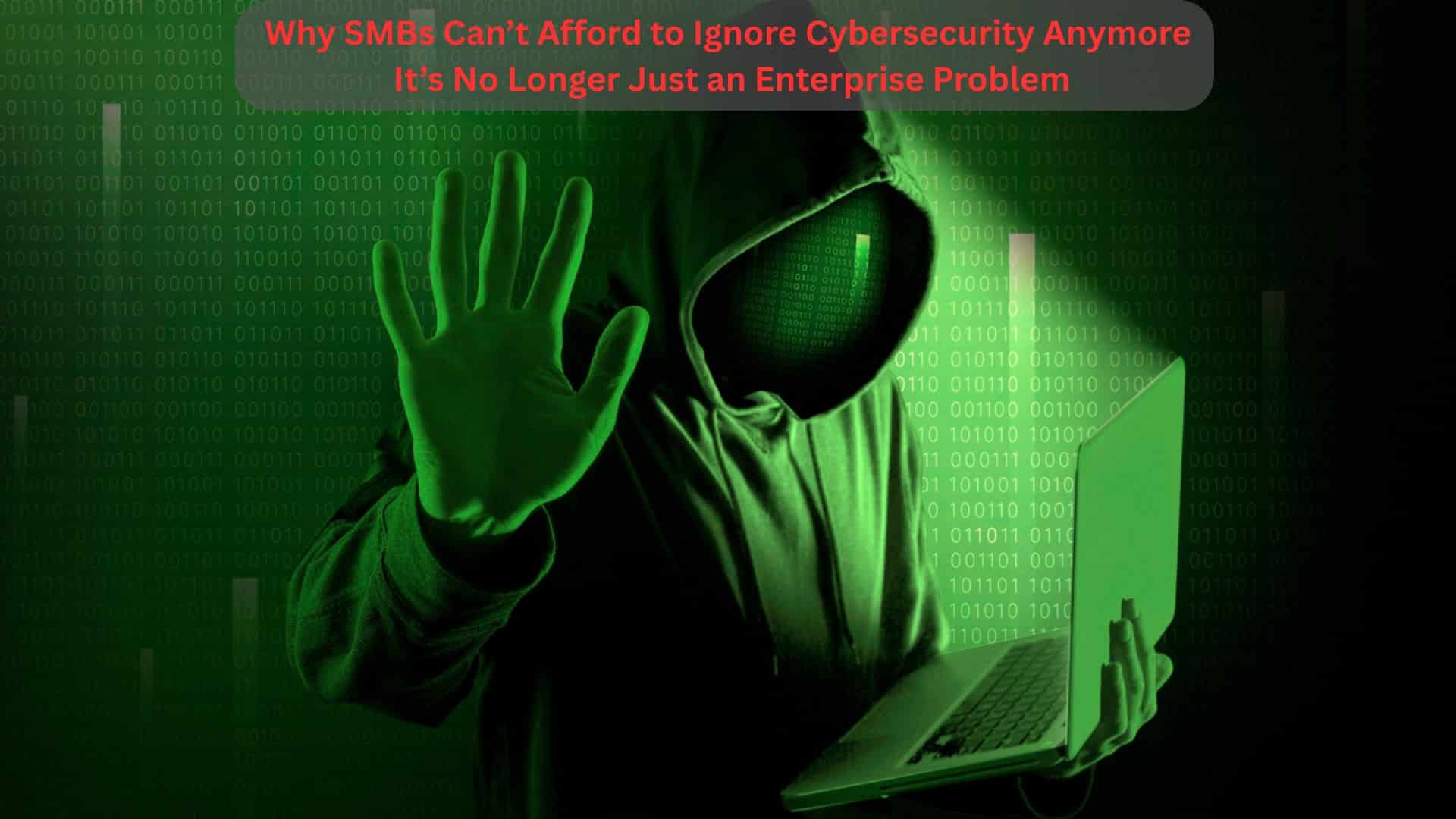For years, cybersecurity has been seen as a concern for large corporations with massive databases and millions in revenue at stake. Small and medium-sized businesses (SMBs) often believed they were too small to be targets. That belief couldn’t be more dangerous today. Cyber threats have evolved, and hackers are no longer just going after the big fish – they’re casting wider nets, and SMBs are now in the crosshairs.
At MAKEWAYS TECHWORKS, we’ve seen firsthand how devastating cyber attacks can be for smaller businesses. This blog breaks down exactly why SMBs need to take cybersecurity seriously — before it’s too late.
1. Cybercriminals See SMBs as Easy Targets
Topic Number: 1 Hackers are well aware that many SMBs don’t invest heavily in cybersecurity. This makes them low-hanging fruit.
-
Weak infrastructure: Many SMBs lack advanced firewalls, intrusion detection systems, or even updated antivirus software.
-
Lack of awareness: Employees in smaller businesses often receive little to no training on phishing, social engineering, or secure password practices.
-
Budget constraints: Tight budgets often lead SMBs to skip critical security investments, assuming the risk is low.
Example: A small e-commerce store with outdated software and a weak admin password was recently hacked, leading to customer data leakage and permanent reputation damage.
2. One Breach Can Destroy a Small Business
Topic Number: 2 Unlike big corporations, SMBs often don’t have the financial resilience to bounce back from a cyber attack.
-
Loss of trust: Once customer data is compromised, it becomes extremely hard to rebuild trust.
-
Legal consequences: Even small businesses are subject to data privacy laws like GDPR or local IT regulations.
-
Financial toll: A ransomware attack can demand thousands of dollars – and paying it doesn’t guarantee data recovery.
Example: A regional travel agency had to shut down operations for weeks after a ransomware attack, resulting in canceled trips and a 30% loss in clients.
3. Cybersecurity Is Now a Customer Expectation
Topic Number: 3 People today are more cautious than ever about how their data is handled.
-
Privacy-first mindset: Customers expect their data — names, emails, phone numbers, card details — to be protected by default.
-
Digital trust equals loyalty: Businesses that showcase their commitment to security are more likely to retain customers long-term.
-
Secure websites convert better: A secured HTTPS website not only improves SEO but also increases trust during online transactions.
Example: An online learning platform saw a 20% increase in sign-ups after they showcased their GDPR compliance and multi-factor authentication system on the homepage.
4. Regulatory Requirements Are Catching Up With SMBs
Topic Number: 4 Governments and industries are updating their regulations to include businesses of all sizes.
-
Mandatory compliance: From healthcare to finance, there are now baseline security requirements even for small vendors.
-
Audits and penalties: Non-compliance can lead to heavy penalties, lawsuits, or being barred from partnering with enterprise clients.
-
Client demand: Larger clients increasingly demand that their vendors follow best cybersecurity practices.
Example: A tech startup lost a major contract because they couldn’t provide a basic cybersecurity compliance report required by the client’s procurement team.
5. Remote Work Has Expanded the Threat Surface
Topic Number: 5 The rise of remote and hybrid work has added new vulnerabilities for SMBs.
-
Personal devices = weak points: Employees working from home may use unsecured devices or public networks.
-
Cloud dependency: While convenient, misconfigured cloud platforms can expose sensitive business data.
-
Shadow IT: Unmonitored apps or tools used by employees can serve as unguarded backdoors.
Example: A real estate firm experienced a data breach when an employee unknowingly uploaded sensitive client documents to a free file-sharing site with weak security protocols.
6. Proactive Cybersecurity is Cost-Effective in the Long Run
Topic Number: 6 A common myth is that cybersecurity is expensive. In reality, prevention is far cheaper than recovery.
-
Affordable solutions exist: From managed firewalls to secure cloud storage, cost-effective tools are readily available for SMBs.
-
Insurance & peace of mind: Cybersecurity insurance is becoming more accessible, and having a solid security policy helps reduce premiums.
-
Long-term savings: Investing in basic security now can prevent devastating costs down the road.
Example: A logistics company invested in a cybersecurity audit and endpoint protection. Six months later, they thwarted a malware attack that could have halted operations for days.
7. Cybersecurity Can Be Your Competitive Advantage
Topic Number: 7 When you prioritize cybersecurity, it doesn’t just protect you — it sets you apart.
-
Builds credibility: Highlighting secure practices builds brand trust with potential clients.
-
Win better contracts: Many B2B clients now evaluate vendors based on how secure their systems are.
-
Protects innovation: Your ideas, blueprints, strategies — all need to be safeguarded from theft or leaks.
Example: A fintech startup won a high-profile partnership after presenting its end-to-end encryption protocols and internal data handling processes.
🚀 How MAKEWAYS TECHWORKS Can Help
At MAKEWAYS TECHWORKS, we understand the unique challenges that SMBs face when it comes to cybersecurity. We offer end-to-end services tailored to small and medium businesses, including:
✅ Cybersecurity audits & vulnerability assessments
✅ Secure cloud infrastructure setup
✅ Web & mobile app security integration
✅ Ongoing monitoring and threat detection
✅ Employee awareness training
✅ Data backup & disaster recovery solutions
Ready to protect your business? Let’s talk.
🌐 Website: www.makewaystech.com 📧 Reach out to us at: [email protected]
#cybersecurityawareness #smbsecurity #dataprotection #smallbusinesssupport #techsolutions #cyberattackprevention #secureyourbusiness #makewaystechworks #remoteworksecurity #websecuritymatters
